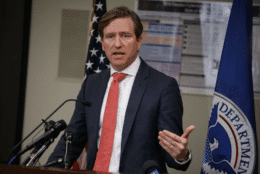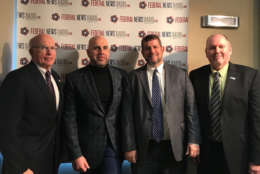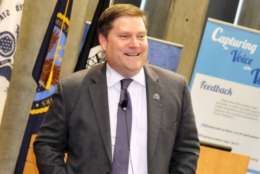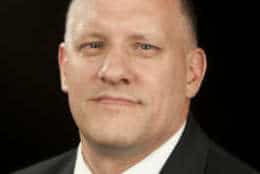cyber attacks
-
Federal cybersecurity efforts can often seem like one long campaign to prevent another Office of Personnel Management cyber breach, or Edward Snowden leak. But that’s only half the story.
April 29, 2019 -
The technology modernization drive has been operating in the federal government for years. Yet agencies continue to relay on so-called legacy systems.
April 11, 2019 -
An important term ought to be in every cybersecurity practitioner's lexicon: Adversary tradecraft. Dmitri Alperovitch at Crowdstrike joined Federal Drive with Tom Temin in studio for more details.
April 03, 2019 -
A hair-raising report to Navy Secretary Richard Spencer was leaked, and it presents a grim picture of America's cybersecurity threat.
March 13, 2019 -
The D.C. area's senate delegation is taking an interest in cybersecurity beneath the city's streets.
January 29, 2019 -
DHS directed agencies on Jan. 22 to take four steps to protect against DNS tampering attacks, including adding multi-factor authentication to servers and software.
January 28, 2019 -
Last year the Senate passed a protection bill but nothing happened in the House. Now Sen. Angus King (I-Maine) has co-sponsored a new bill he hopes will have better prospects.
January 25, 2019 -
Tony Cole, the CTO at Attivo Networks, explains how agencies can stop being one-step behind the cyber attackers.
November 19, 2018 -
In a two-part series, host Sean Kelley discusses with experts from the election community key lessons learned from 2016.
November 02, 2018 -
A sloppy cyber risk assessment can lead to misallocation of resources, false positives and an unrealistic sense of security at federal agencies, says Larry Clinton of the Internet Security Alliance.
October 23, 2018 -
A new High Risk series report from the Government Accountability Office took the federal government to task over its lack of action on cybersecurity issues, but House lawmakers passed a few bills that aimed at improving the situation.
September 11, 2018 -
For this month’s show, Cyber Chat’s host Sean Kelley sat down with a reflective Scott Blackburn. Blackburn served in many capacities while at the Veterans Affairs Department.
August 07, 2018 -
Amanda Sparks, a writer and researcher, offers six tips to keep federal employees and their data safe from cyber attacks.
July 05, 2018 -
Securing vehicle software updates, telephone network attacks at 911 centers and mobile app vulnerability are among the agency's research projects underway.
April 12, 2018 -
Stew Magnuson, editor-in-chief of National Defense Magazine, joins host Derrick Dortch on this week's Fed Access to discuss artificial intelligence, army robotics, hypersonic missiles and other advances in military technology.
April 05, 2018















